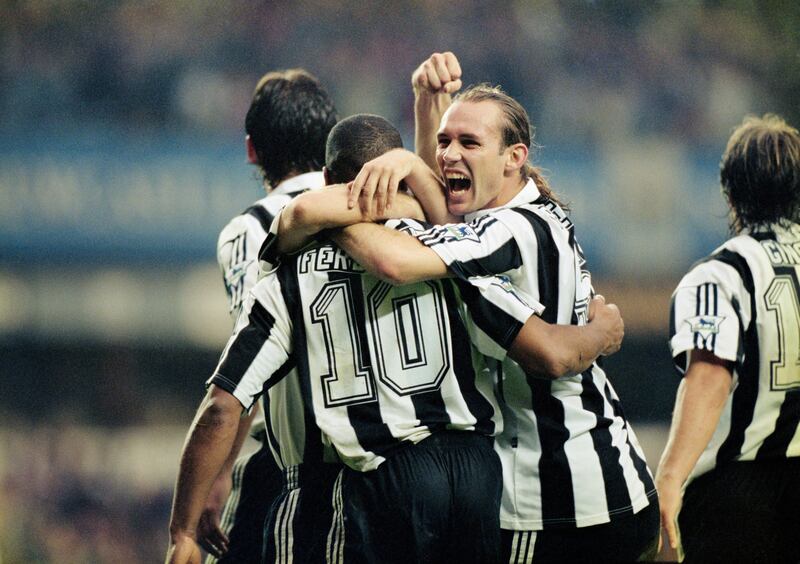David Ginola remains a popular figure in the memory of English football fans as being one of the great entertainers in the Premier League in the 1990s and early 2000s.
He became a cult figure at first Newcastle United and then Tottenham Hotspur, and would also go on to play for Aston Villa and Everton in England's top tier.
Ginola retains happy memories of his time at Newcastle, a team good enough to dismantle double winners Manchester United 5-0 at St James' Park in October 1996. The Frenchman was one of the five scorers that day.
"Kevin Keegan didn't have to say much to motivate us that day," Ginola recalled on the sidelines of the Lisbon Web Summit, where he was speaking to promote the importance of learning CPR (cardiopulmonary resuscitation) and the use of technology to help people respond to it given his near-death experience playing in a charity match in the south of France in 2016.
“We knew the strength of Man United, but we were sure of our qualities. We scored five great goals.”
Was it revenge, because United had come from 12 points behind Newcastle to win the Premier League title earlier that year?
“No, certainly not among the players. Maybe among the managers. I remember [Kevin] Keegan’s frustration [with Alex Ferguson earlier that year] and him saying ‘I’d love it' [if United dropped points in their remaining games].
"That was the first time I saw Kevin getting out of his mind. We were in the dressing room and we could hear him shouting outside doing the live interview with Sky. He was very loud. He came in the dressing room and banged the door. We’d not seen him like that. He was usually calm, composed, cool and very down to earth.
"He was a very nice man. But he probably realised at the time that he made some mistakes in managing his team. In the second half he could have dropped someone, maybe put on a defender or a midfielder to hold our lead. Maybe there was a weakness in terms of strategy and when you realise that you need to get all these frustrations out of yourself.”
Ginola played in a hugely entertaining Newcastle side. “We finished runner-up twice,” he points out.
Did he think that Newcastle would win the league when 12 points clear of United in January 1996?
“Oh yeah,” he says, “Oh yeah. We thought that nothing could stop us. We were scoring goals for fun. We did concede some silly goals, but always managed to score one more goal than opponents.
"We didn’t have injuries or suspensions. It was looking really good until Man United came to St James Park in March.”
Manchester United players, officials and fans still recall it as the game which helped swing the title their way. Martin Edwards, then chairman at Manchester United, remembers the 1-0 victory for giving him a better buzz than any other. “If we’d lost that game, there would have been no doubt that we would have not won the league,” he said.
But Manchester United didn't lose.
“Eric [Cantona] scored,” sighs Ginola. “It was a killer. It was such a tight game and we knew that whoever scored one goal would probably get all three points. It was such a frustration to play so well for an entire season and win no trophies at all.
"That was my biggest frustration, that we couldn’t give a trophy to those wonderful fans who’ve been supporting their team for years. I’ve met so many over the years and I never lost in my mind how important those fans were.
"I respected that. I felt it very strongly at Newcastle. It’s a very working class city. Tough life. Tough weather. Tough people. I wanted so much to win a trophy for them.”






